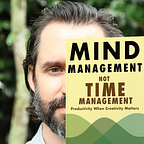Introducing Deliberate Golf
Long ago, there was nothing in the world that I wanted more than to be a professional golfer. Many people I know very well have no idea I even play.
I practiced nonstop. I played on my high school team. I chose my first college based upon my belief that I had a shot at making the golf team as a walk-on. Truthfully, I didn’t stand a chance.
Once I escaped Nebraska, I stopped playing golf. It was too expensive to play in California; it didn’t fit my urban, car-free lifestyle; and I had some cultural hang-ups about the game. I’ve played a handful of times in the thirteen years that have elapsed since then.
In recent years I’ve had a fantasy: What if I took everything I’ve learned about learning since my days of golfing, and applied those things to see if I could actually get good at golf?
In my work as a product designer in Silicon Valley, and through teaching myself and others through writing books, I’ve learned a lot about human behavior, and how the mind takes in information. I even collaborated with behavioral scientist Dan Ariely on a productivity app that became a part of Google Calendar.
So what if I had a month, or a year, or several years with which to get “good” at golf? What qualifies as “good?” Is it shooting in the 70’s, like I have only a handful of times in my life? Is it shooting even par? Is it a scratch handicap? Is it being a touring pro? I still don’t know.
You may have heard about the guy who decided to start from scratch and practice golf for 10,000 hours. I hear he’s gotten pretty good.
His mission was inspired by “the 10,000 hours rule,” which was popularized in Malcolm Gladwell’s Outliers. The 10,000 hours rule comes from studies by behavioral scientist Anders Ericsson.
What the 10,000 hours rule misses—as popularized—is that it’s not just 10,000 hours of practice. It’s 10,000 of deliberate practice.
I’ve certainly already accrued thousands of hours of practice at golf. But only a small fraction of that practice has been deliberate practice. It has to be effortful. It has to be goal-oriented. It has to be focusing on specific skills. You need to be getting direct feedback, and adjusting accordingly. In the violinists that Ericsson studied, they could only mentally withstand a couple hours a day of truly deliberate practice.
So, what if I put in more deliberate practice? What would deliberate practice look like?
I haven’t followed through on this fantasy, because it’s hard to pull off. You need the time and money, and you need access to a golf course and practice facilities. Also, would I even enjoy practicing golf so much anymore?
I recently was presented the opportunity to do a proof-of-concept of this fantasy—to try it out for several days, or a week, or maybe several weeks.
Because something terrible happened in my life.
Three years ago, I moved to Colombia to double-down on writing and podcasting. I’ve since built a life there. I consider it my home. I made my first investment in a Colombian business.
Then, my investor visa was rejected. Then it was rejected again, and I had to leave the country for the rest of 2018.
Which puts me in a position I never thought I’d be in: I’m 39 years old, and for the next month, I’m living with my parents in the Phoenix area.
I’m heartbroken, beat up, bored out of my mind, and my sanity hangs by a thread. But I’m minutes away from a practice facility. And I have my golf clubs.
Whenever something terrible and unexpected happens, I try to look for what opportunities that terrible event presents. This is one of those opportunities. Maybe it will turn out to be a Black Swan. I have little to lose, and a lot to gain.
When I floated this idea on Twitter, one person said it didn’t sound that interesting. Isn’t it much more interesting if a person who has never played before uses deliberate practice to become a pro?
Point well-taken, but here is how I think of it: It has been proven that I have zero talent in golf. I practiced all of the time. I know just about everything there is to know about what a perfect swing or a perfect putting stroke should be like. I know a good amount about strategy as well.
Most important, I loved golf to the depths of my soul. Yet I still sucked. The best round I can remember having was shooting about 78 (6 over par). The best handicap I can remember having was about 13. (13.3 to be exact). My greatest memory of golfing in competition was when I miraculously placed third in a junior tournament.
Yet despite hating to write throughout my childhood and adolescence, I’ve somehow become a best-selling author? Life isn’t fair!
I hereby publicly give myself permission to take this project as far as I see fit, or to completely abandon it as of three minutes from publishing this post. In following my own advice, I’m weary of the Fortress Fallacy. I’m starting small.
Over the past week, I have practiced a few times as a proof of concept of a potential proof of concept. I gave myself a nice blister on my thumb, which is a necessary step in getting back into playing form.
Today, I practiced for four hours. I still have a love for the game, and for practicing. And my mind is bubbling with ideas about how to make golf practice deliberate practice.
Stay tuned.
